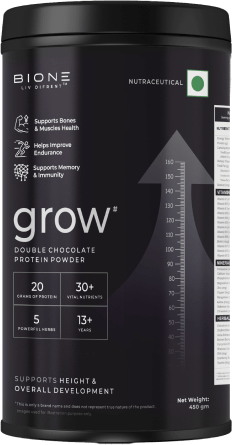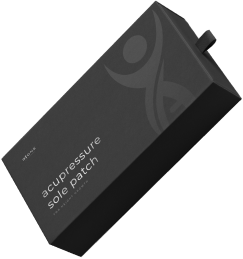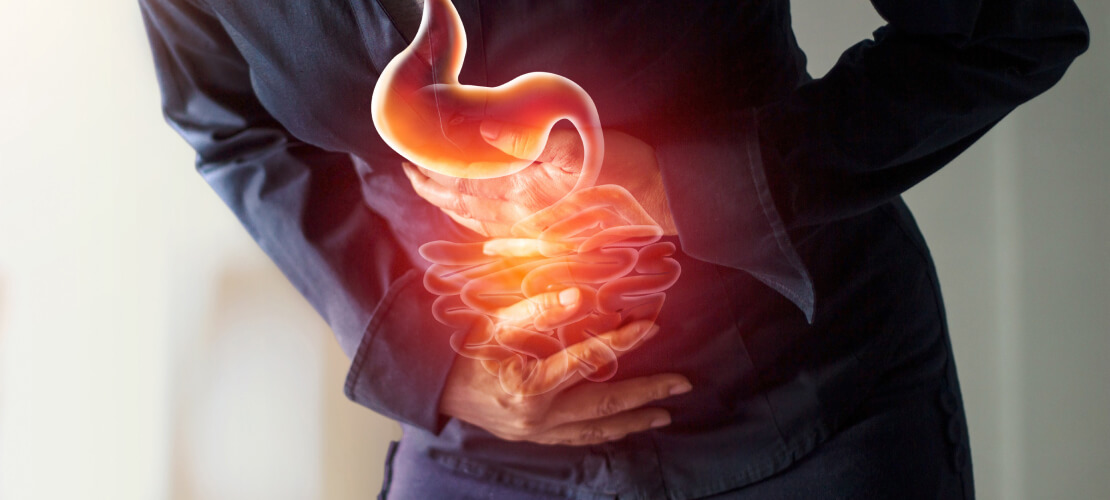Table of Contents
SHARE IT ON
Most people experience a sudden burning sensation in the stomach after meals, during stress, or even on an empty stomach. While it’s often mistaken for simple acidity, the root cause is frequently deeper. Your stomach not only digests food but also influences nutrient absorption and even immunity. When your gut microbiome is out of balance, symptoms such as indigestion, bloating, and burning sensations in the stomach become common.
Instead of ignoring these consistent signs of gut microbiome imbalance, it’s important to understand their link to gut health. Through this blog, we will observe the common reasons for burning sensations in the stomach, the role of gut health, and the natural remedies to help you recover.
Understanding the Burning Feeling in Your Stomach
The burning sensation in the upper stomach is most often described as heat or discomfort under the chest or abdomen. The majority of women experience burning in the upper abdomen after eating, especially heavy or spicy foods. Though acid reflux is often suspected, the true cause of stomach burning may be poor gut health and weak digestion.
Common Causes of Stomach Burning Causes

Burning in the stomach can be triggered by diet, lifestyle, or medical conditions:
- Acid Reflux or GERD: When stomach acid flows back and irritates the esophagus.
- Gut Microbiome Imbalance: Harmful bacteria dominate, causing gas, acidity, and burning.
- Spicy or Oily Foods: They burn and irritate the lining of the stomach, causing pain.
- Stress & Anxiety: Triggers the release of acids that burn the stomach after eating.
- Medications: Some medications damage the stomach lining.
- Gastritis or Ulcers: Direct inflammation or erosion of the stomach wall.
Gut Health & Stomach Burning

Your gut is the headquarters of digestion. When good bacteria are in control, food breaks down easily, without irritation. But when bad bacteria take over, digestion slows, and inflammation rises. This upset leaves you more susceptible to acidity, gas, and stomach burning.
- Pathogenic gut bacteria cause excess acid and inflammation.
- A weak gut lining makes you sensitive to necessary spices.
- Poor nutrient absorption leads to fermentation of undigested food, causing heat.
Spending time on short-term medications alone will never do any good. Improving gut health is the true long-term solution.
Signs Your Burning is Gut-Related
You may have a gut imbalance if you notice:
- A repeated burning sensation in the stomach after meals.
- Burning sensation in the upper stomach during the night or early morning.
- Bloating, constipation, or diarrhea with burning.
- Symptoms worsening during stress or anxiety.
- A cycle of indigestion, burping, and stomach heat.
How to Stop Stomach Burning Immediately?
- Drinking cold milk or coconut water to neutralise excess acid.
- Chewing fennel seeds or sipping chamomile tea.
- Drink ginger tea in small amounts to relieve the irritation.
These provide short-term comfort, but for lasting results, focus on gut-friendly foods and lifestyle changes.
Home Remedies for Stomach Burning
Herbal and dietary remedies can help manage mild stomach burning:
- Aloe-Vera Juice: It calms the stomach lining down.
- Cumin Buttermilk: Balances natural acidity.
- Bananas and Oats: Fiber-rich food and mollify acidity.
- Small Portions: Less acidity build-up and a slow and consistent digestion.
Lifestyle Habits to Avoid Stomach Burning
The basis of long-term relief is a daily routine. To avoid repeating the causes of stomach burning, try:
- Chew food slowly.
- Stay hydrated throughout the day.
- Add probiotics rich-food such as yogurt, kefir, fermented foods.
- Avoid junk food, soda, and overly spicy dishes.
- Manage stress through meditation, walking, or exercise.
- Sleep 7–8 hours daily to facilitate healing of the gut.
Gut Healing Foods
Eat more of: Oats, bananas, yogurt, green vegetables, and herbal teas.
Avoid: Snacks that are fried, red chili, processed food, soda, and too much coffee.
By keeping your gut microbiome healthy, you automatically prevent stomach burning from becoming an ongoing issue.
When to See a Doctor?
Not all burning is harmless. See a doctor if you experience:
- Persistent or severe discomfort.
- Vomit or stool containing blood.
- Unintentional weight loss.
- Difficulty swallowing food.
- Chest pain or night-time burning.
These may indicate ulcers or GERD that require professional treatment.
Conclusion
The sensation of burning in the stomach is usually your body’s way of signaling that your gut needs care. Although spicy foods, stress, and acidity will trigger it, poor gut health is usually the root cause of the problem. Staying away from a habit of burning your stomach daily is possible by ensuring you eat smartly, managing stress, and making choices that would make the gut happy.
You heal in the reverse, though, from the inside out. Companies like Bione are using gut microbiome testing to help people identify imbalances and personalise their nutrition for long-term relief. By addressing gut health at its root, you can heal from the inside out.
FAQs
Consume cold milk or coconut water or chew fennel seeds in order to prevent immediate burning. The home remedies cool down the extra acid and provide instantaneous relief. However, when burning is common, place more emphasis on having good gut health rather than quick fixes.
You can have a burning sensation in the stomach caused by acidity, bad digestion, gastritis, stress, or ulcers. A devastated gut microbiome that causes an imbalance in the gut microbiome compounds the issue. Getting rid of constant burning is natural and effective when you know your food triggers and optimise your gut flora.
If your stomach hurts, avoid heavy foods or spicy foods. Keep yourself hydrated, take water as well as light meals. Consume comfort foods such as bananas, oats, or buttermilk. In case of acute or frequent burning, it is advisable to go to a doctor to rule out ulcers or GERD.
Some of the useful solutions include aloe vera juice, ginger tea, and buttermilk mixed with cumin. Digestion can also be built up through probiotic food such as yogurt. Though these offer relief, they must be coupled with healthy habits, such as stress relief, staying hydrated, and resting well, to achieve long-term benefits.











